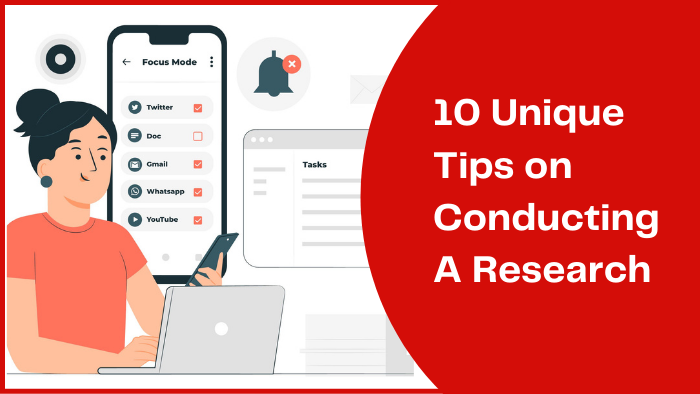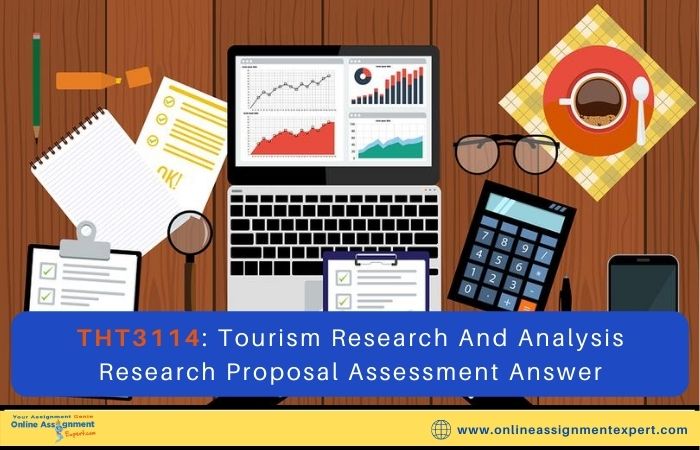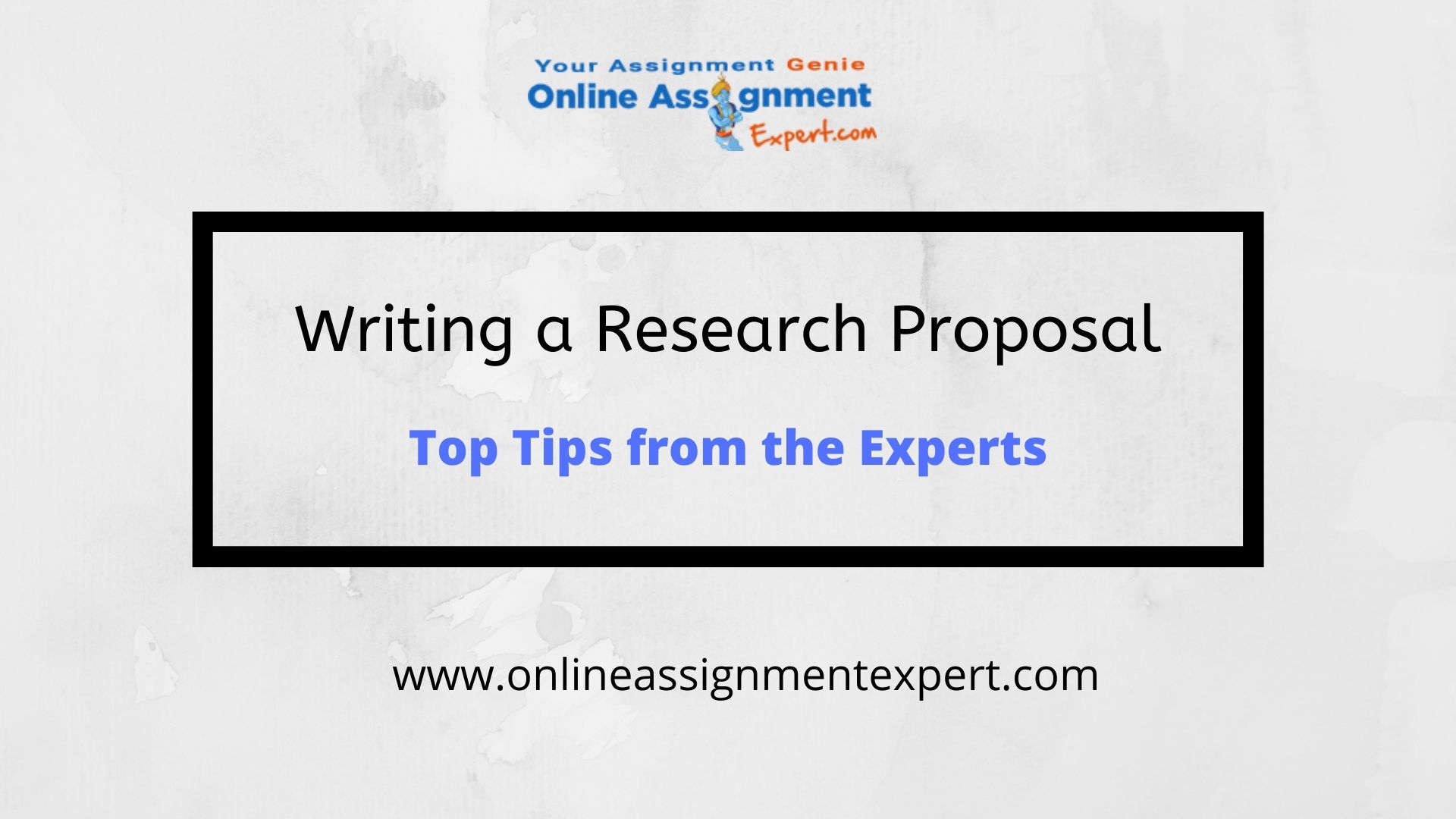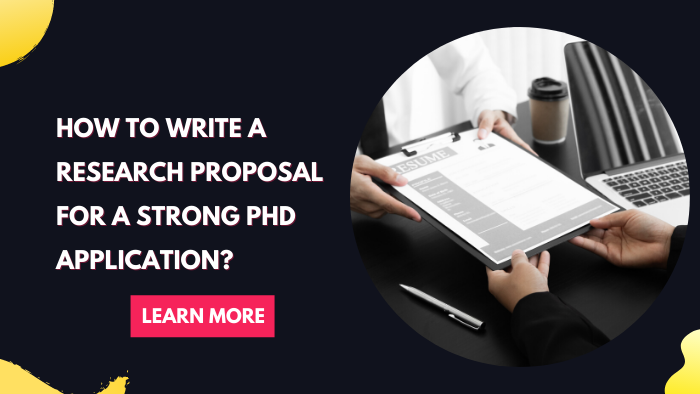
January 06, 2022
10 Unique Tips on Conducting a Research
No 1 Assignment Help
is only a click away.
10 unique tips on conducting a research
Are you provided with a task that needs extensive research? Just keep in mind that in the midst of all the excitement, you must focus on a few things in order to complete that task correctly. Choosing the appropriate way of research idea is one of the topics that people prefer to talk about. The reason for this is that what you enjoy now may not be what you like in 20 years. And there's a good possibility you'll regret getting an effective source for research. Therefore, it is always better to do some research on the task before performing. That’s what requires a better research approach that could implement in all ways. Here we’ll discuss 10 Unique Tips on conducting Research that could assist you in a possible way.
.png)
What Characteristics Distinguish To Conduct A Research?
The closure will be achieved by good research proposals that demonstrate how impacts and deliverables will answer their ‘Big Question.'
What exactly is research? There are a variety of definitions, including:
- ‘a methodical study to uncover facts or gather data' (1992, Collins Gem English Dictionary)
- ‘a thorough examination of a subject, especially with the goal of discovering (new) knowledge or gaining a (new) understanding' (2008, Cambridge Dictionaries Online)
- ‘an investigational method that results in new discoveries that are efficiently disseminated' (Consultation document for the REF, 2009)
- The emphasis on new and original facts, information, and understanding is a major feature in all of these definitions.
Strong research ideas must expertly mix and blend a "Big Question" with broad consequences, influence, and importance, as well as an innovative approach and sound technique. Good proposals will feature a unique question or a novel method, as well as relevant methodology and study areas. Finally, good proposals will demonstrate how their products and commitments will feedback into the 'Big Question' by bringing their plan full circle.
10 Intriguing Steps on conducting a perfect research
The introduction serves a number of functions. It provides context for your research, introduces your topic and objectives, and provides an outline of the paper. A strong opening will set the tone for the rest of your article, encouraging readers to move on to the methods, findings, and commentary. If you are curious about how to conduct a research then don’t forget to grasp the whole blog.
In this article, we'll provide you with some pointers on how to write an energising. These guidelines are primarily for complete papers and letters that present unique research findings. Although some of the suggestions are better suited to essays in specific subjects, the themes are universal.
- Begin broad and then narrow your focus - Briefly define the general research area in the opening paragraph, then narrow it down to your specific emphasis. This will assist place your study issue in the context of the larger field, making it more attractive to customers than simply professionals in your field.
- Describe the goals and benefits of the research - This element is frequently overlooked in papers that are rejected for "not demonstrating the importance of the topic" or "lack of clear motivation." Explain what you aim to accomplish and why your reader should be interested in seeing if you succeed. The underlying framework can be as straightforward as "We want to accomplish X because it will lead to Y."
- Cite everything you can, but don't go overboard - Show why the topic is essential rather than merely stating that it is important. You should regularly examine the most important and interesting literature relative to your subject once you've limited your emphasis to the exact topic of your inquiry. However, you're not writing a review article, so your review of the literature should be thorough but not excessively extensive. If your introduction is excessively long or overcrowded with references, citing articles published rather than all the individual papers that were already covered in the review may be a viable option. You may also seek Professional essay Writing help from online experts.
- Avoid citing too many sources for a single point - "Many research has indicated a strong relationship between X and Y [7-20]," says the phrase. This statement references far too many publications at the same time. Although sources [7-20] provide a decent summary of the topic, this statement lacks context and justification for these previous studies. If most of these sources are worthy of citation, they should be addressed in more detail.
- Either your hypothesis or your research question should be stated clearly - In empirical scientific research, stating a hypothesis might be a useful way of structuring the study. Rather than just saying, "In this study, we show that X is connected to Y using method A," you may say, "In this study, we assume that X is related to Y and we test this hypothesis using method A." Instead of articulating a research topic, you could state one informal science or exploratory research: "The following research issue is investigated in this study: Is there a link between X and Y?" It's worth noting that the testable theory doesn't always have to be stated in the declarative form (with a question mark); instead, it can be expressed in the declarative form (without a question mark).
- Locate important resources - What are the resources you'll need to finish this field study? Will you have to do fieldwork, and if so, how long will it take? Are there any unique cloud computing infrastructure, products, programmes, satellite data photographs, or computer codes that you'll need?
- Research time frame - A simple Gantt chart (they do not need to be complicated). In your narrative, you should outline the main results. They must, of course, correspond to the project scope. A genuine estimate of the time commitments for each target should be included in your study design. Make a Gantt Chart outlining each goal and the amount of time you have available (you can do this in Excel or on paper!). Calculate how much time each goal will require you in-depth, and be serious about whether you can complete it in the timeframe you have available. Students frequently misjudge how long it will take them to complete a task, so be careful.
- Make a workflow diagram - A stylized workflow model is shown here. After you've completed the stages above, you'll be able to bring it all together into a logical workflow model. These, in my opinion, should be included in all thesis and grant proposals since they clearly show how reasonable notice relate to one another.
- Risks and how to avoid them - If you're going to go fieldwork, you'll need to perform a risk assessment and explicitly define potential dangers, as well as how you'll minimise or avoid them. However, you should be aware of broader threats; do you have the knowledge needed? Are the materials you require generally accessible? Will the prices fluctuate? The following are some potential dangers:
- Currency rates that are unreliable
- Hazards to wildlife (polar bears?)
- Weather (sweltering, freezing, and blizzards)
- Hazards to the environment and garbage disposal Mechanical failure
- being unable to access critical datasets
- Agricultural areas are accessible.
- Carry out your research! - You're ready to start your research now that you've spent considerable time properly planning it. You will conduct research on a topic that is relevant, interesting, and enjoyable to you. You've produced a solid study proposal and are confident that your findings will be useful to society and other scientists. Have a blast! We hope that your curiosity about how to conduct a research ends, here.
As you continue, evaluate and adjust your study. Analyse your progress as you go, and be ready to adjust your methods or aims if you discover something isn't viable or too tough. In fact, if your tactics don't work or it proves out to be impossible, your effort may need to go complete circle! If you have figured out these 10 Unique Tips on conducting Research then you will be able to identify your research in a better way.
We believe that these pointers will assist you in writing excellent introductions that will pique the interest of readers and evaluators. Check out Online Assignment Expert’s samples if you're looking for more writing advice. You may also obtain writing hints and recommendations regarding your individual book from an expert editor. Good luck!
Related Blogs
Subscribe Our Newsletter & get Information about latest courses









